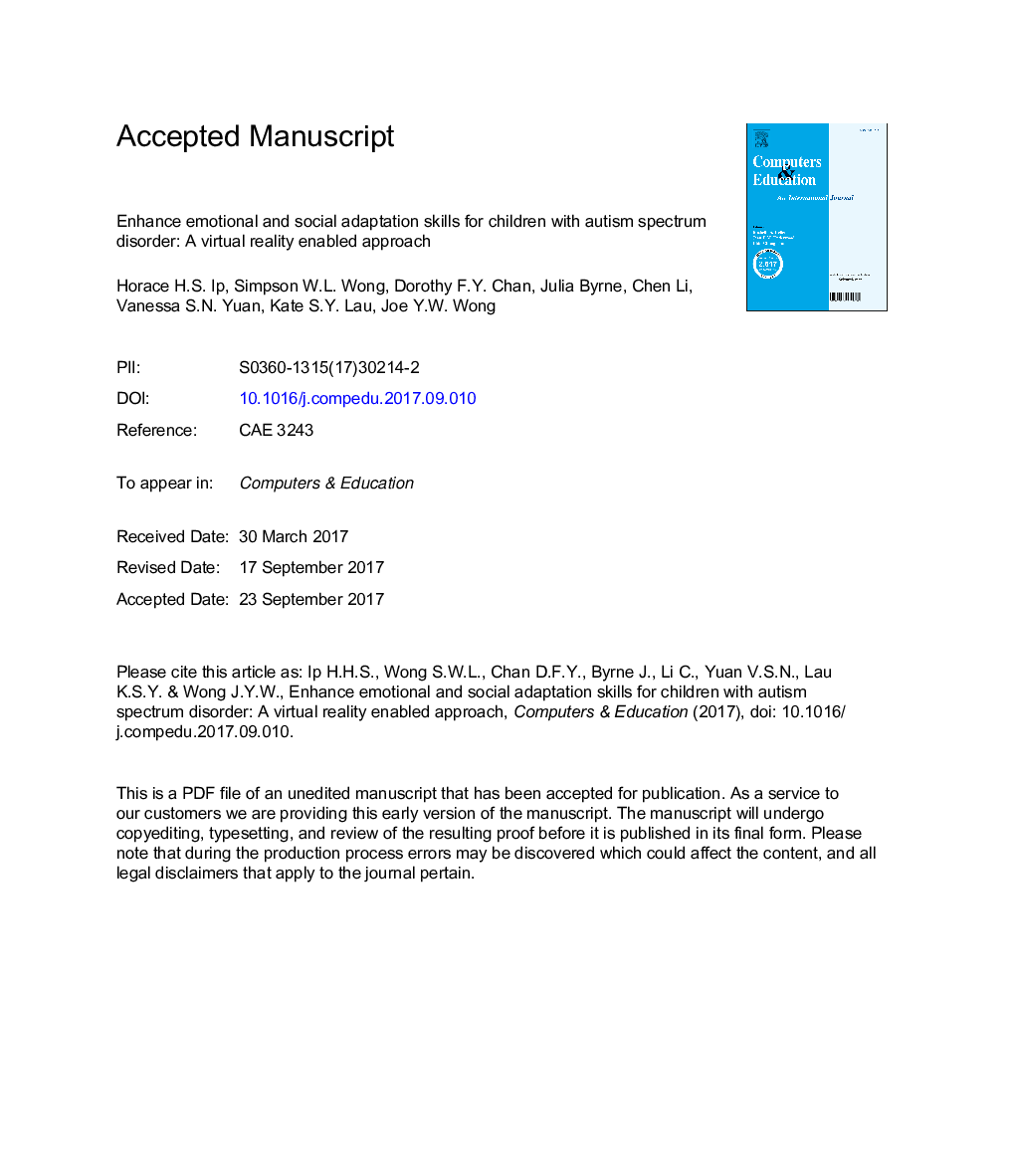| Article ID | Journal | Published Year | Pages | File Type |
|---|---|---|---|---|
| 4936730 | Computers & Education | 2018 | 26 Pages |
Abstract
Deficits in social-emotional reciprocity, one of the diagnostic criteria of Autism Spectrum Disorder (ASD), greatly hinders children with ASD from responding appropriately and adapting themselves in various social situations. Although evidences have shown that virtual reality environment is a promising tool for emotional and social adaptation skills training on ASD population, there is a lack of large-scale trials with intensive evaluations to support such findings. This paper presents a virtual reality enabled program for enhancing emotional and social adaptation skills for children with ASD. Six unique learning scenarios, of which one focuses on emotion control and relaxation strategies, four that simulate various social situations, and one that facilitates consolidation and generalization, are designed and developed with corresponding psychoeducation procedures and protocols. The learning scenarios are presented to the children via a 4-side immersive virtual reality environment (a.k.a., half-CAVE) with non-intrusive motion tracking. A total number of 94 children between the ages of 6-12 with clinical diagnosis of ASD participated in the 28-session program that lasted for 14 weeks. By comparing pre- and post-assessments, results reported in this paper show significant improvements in the project's primary measures on children's emotion expression and regulation and social-emotional reciprocity but not on other secondary measures.
Related Topics
Social Sciences and Humanities
Social Sciences
Education
Authors
Horace H.S. Ip, Simpson W.L. Wong, Dorothy F.Y. Chan, Julia Byrne, Chen Li, Vanessa S.N. Yuan, Kate S.Y. Lau, Joe Y.W. Wong,
